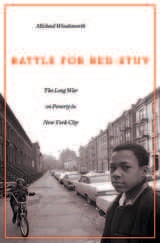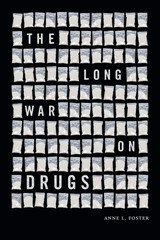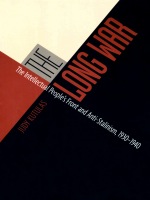
Half a century after the launch of the War on Poverty, its complex origins remain obscure. Battle for Bed-Stuy reinterprets President Lyndon Johnson’s much-debated crusade from the perspective of its foot soldiers in New York City, showing how 1960s antipoverty programs were rooted in a rich local tradition of grassroots activism and policy experiments.
Bedford-Stuyvesant, a Brooklyn neighborhood housing 400,000 mostly black, mostly poor residents, was often labeled “America’s largest ghetto.” But in its elegant brownstones lived a coterie of home-owning professionals who campaigned to stem disorder and unify the community. Acting as brokers between politicians and the street, Bed-Stuy’s black middle class worked with city officials in the 1950s and 1960s to craft innovative responses to youth crime, physical decay, and capital flight. These partnerships laid the groundwork for the federal Community Action Program, the controversial centerpiece of the War on Poverty. Later, Bed-Stuy activists teamed with Senator Robert Kennedy to create America’s first Community Development Corporation, which pursued housing renewal and business investment.
Bed-Stuy’s antipoverty initiatives brought hope amid dark days, reinforced the social safety net, and democratized urban politics by fostering citizen participation in government. They also empowered women like Elsie Richardson and Shirley Chisholm, who translated their experience as community organizers into leadership positions. Yet, as Michael Woodsworth reveals, these new forms of black political power, though exercised in the name of poor people, often did more to benefit middle-class homeowners. Bed-Stuy today, shaped by gentrification and displacement, reflects the paradoxical legacies of midcentury reform.


Judy Kutulas takes us into the debates and outright fights between and within the ranks of organizations such as the League of American Writers, the John Reed Clubs, the Committee for Cultural Freedom, the American Civil Liberties Union, and the National Committee for the Defense of Political Prisoners. Showing how extremist views about the nature and value of communism triumphed over more moderate ones, she traces the transfer of the left’s leadership from one generation to the next. She describes how supporters of the People’s Front were discredited by the time of the Nazi-Soviet Pact and how this opened the way for a new generation of leaders better known as the New York intellectuals. In this shift, Kutulas identifies the beginnings of the liberal anti-communism that would follow World War II.
A book for students and scholars of the intersection of politics and culture, The Long War offers a new, informed perspective on the intellectual maneuvers of the American left of the 1930s and leads to a reinterpretation of the time and its complex legacy.
READERS
Browse our collection.
PUBLISHERS
See BiblioVault's publisher services.
STUDENT SERVICES
Files for college accessibility offices.
UChicago Accessibility Resources
home | accessibility | search | about | contact us
BiblioVault ® 2001 - 2024
The University of Chicago Press









